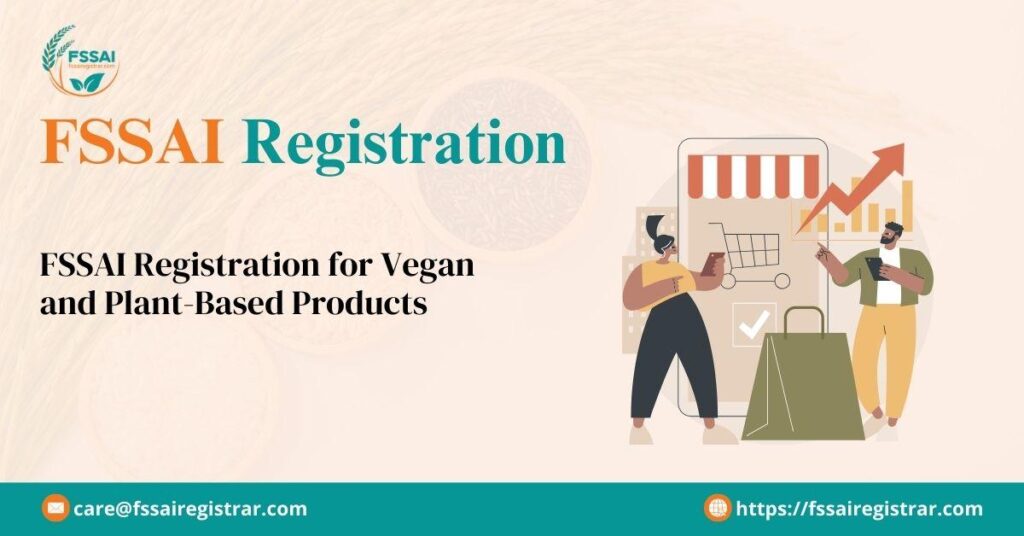In food safety and public health, the role of the Food Safety and Standards Authority of India (FSSAI) is paramount. FSSAI registration is a crucial requirement for food businesses operating in India, ensuring that they adhere to the highest standards of food safety. However, the significance of FSSAI registration goes beyond mere compliance; it is closely intertwined with various health certifications that ensure the safety and quality of food products. This article explores the connection between FSSAI registration and health certifications, emphasizing their importance in safeguarding consumer health and promoting food safety.
Understanding FSSAI Registration
FSSAI registration is mandatory for all food businesses in India, ranging from large manufacturers to small home-based food producers. The primary objective of FSSAI is to regulate food safety and standards, thereby protecting consumer interests. The registration process involves obtaining a unique Food Safety License, which serves as an identity for the food business. This license indicates that the business has complied with the necessary food safety regulations and guidelines established by the FSSAI.
The FSSAI framework includes regulations covering various aspects of food safety, including hygiene practices, food processing standards, labeling requirements, and the use of additives. By obtaining FSSAI registration, food businesses demonstrate their commitment to maintaining high-quality food products that are safe for consumption.
The Role of Health Certifications
Health certifications are essential documents that verify the safety, quality, and compliance of food products with national and international standards. These certifications cover various aspects of food safety, including hygiene, nutritional content, and the absence of harmful substances. Health certifications can vary based on the type of food business, the products involved, and the specific regulations applicable to different food categories.
Common health certifications include:
- ISO Certification: This certification ensures that a business adheres to internationally recognized quality management standards, enhancing food safety and operational efficiency.
- HACCP Certification: Hazard Analysis and Critical Control Points (HACCP) certification is crucial for food businesses involved in production and processing. It focuses on identifying and controlling potential hazards in the food supply chain.
- Organic Certification: This certification is essential for businesses dealing with organic food products, ensuring compliance with organic farming practices and standards.
- FSSC 22000 Certification: This certification is a global standard for food safety management systems, integrating ISO 22000 with sector-specific technical specifications.
- Nutritional Certifications: These certifications validate the nutritional content of food products, providing consumers with important information about the health benefits of the food they consume.
The Interplay Between FSSAI Registration and Health Certifications
FSSAI registration and health certifications are interconnected in several ways, creating a comprehensive framework for food safety and consumer protection:
Foundation for Health Certifications
FSSAI registration serves as a foundational step for obtaining various health certifications. Before a food business can qualify for certifications such as ISO, HACCP, or FSSC 22000, it must first comply with FSSAI regulations. The registration process helps businesses establish the necessary food safety management systems and practices, which are prerequisites for acquiring these certifications. Therefore, FSSAI registration lays the groundwork for further certification processes.
Enhancing Credibility and Trust
Having both FSSAI registration and health certifications enhances the credibility of a food business. Consumers are increasingly becoming conscious of food safety and quality, and they often seek assurances through certifications. Businesses that hold FSSAI registration, along with relevant health certifications, can build trust with consumers by demonstrating their commitment to safety and quality. This trust can translate into increased customer loyalty and a competitive advantage in the market.
Regulatory Compliance
Both FSSAI registration and health certifications require adherence to specific regulations and standards. By complying with FSSAI guidelines, food businesses inherently align themselves with broader health certification requirements. Regulatory bodies often conduct audits and inspections to ensure compliance with both FSSAI regulations and health certification standards. A business that is registered with FSSAI is more likely to meet the rigorous standards set by health certification bodies.
Facilitating Market Access
In a globalized market, food businesses often seek to expand their reach beyond domestic boundaries. FSSAI registration, combined with recognized health certifications, can facilitate access to international markets. Many countries require imported food products to have valid health certifications along with compliance with local food safety regulations. Businesses that are FSSAI-registered and hold relevant health certifications are better positioned to navigate these regulatory landscapes and gain market entry.
Consumer Awareness and Education
FSSAI plays an active role in promoting consumer awareness regarding food safety standards. This awareness extends to health certifications, as consumers increasingly seek information about the safety and quality of their food. FSSAI’s initiatives to educate the public about food safety regulations help consumers understand the significance of health certifications and the role they play in ensuring safe food products. This knowledge empowers consumers to make informed choices about the food they purchase.
Continuous Improvement
Both FSSAI registration and health certifications emphasize the importance of continuous improvement in food safety practices. FSSAI encourages businesses to adopt best practices and improve their operations, while health certifications often require regular audits and assessments. This focus on continuous improvement not only enhances food safety but also fosters a culture of quality within food businesses, ultimately benefiting consumers.
Conclusion
The connection between FSSAI registration and health certifications is a vital aspect of ensuring food safety and quality in India. By obtaining FSSAI registration, food businesses lay the groundwork for compliance with various health certifications. Enhancing their credibility and trust among consumers. The regulatory framework established by FSSAI not only safeguards public health but also promotes transparency and accountability in the food industry. In an era where consumers are increasingly concerned about food safety. Understanding the importance of both FSSAI registration and health certifications is crucial for food businesses. By prioritizing compliance with these standards, businesses can not only protect consumer interests but also position themselves. For growth and success in a competitive market. Ultimately, the synergy between FSSAI registration and health certifications creates a robust framework for ensuring safe and high-quality food products, benefiting consumers and the industry alike.






More Stories
Sports Massage Treatments Can Enhance Game
Custom Boxes Get Unique Packaging Solutions
The Complete Guide to Freezer Paper Wholesale What You Need to Know